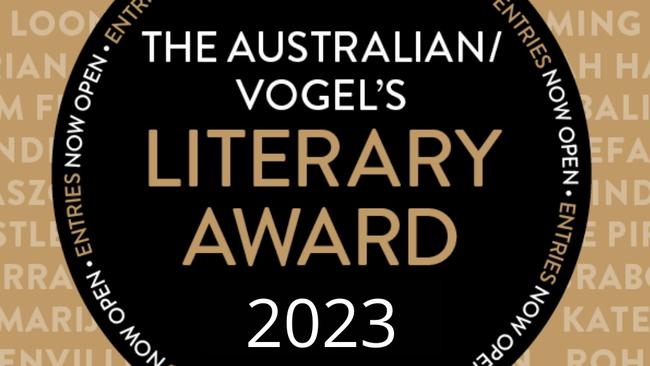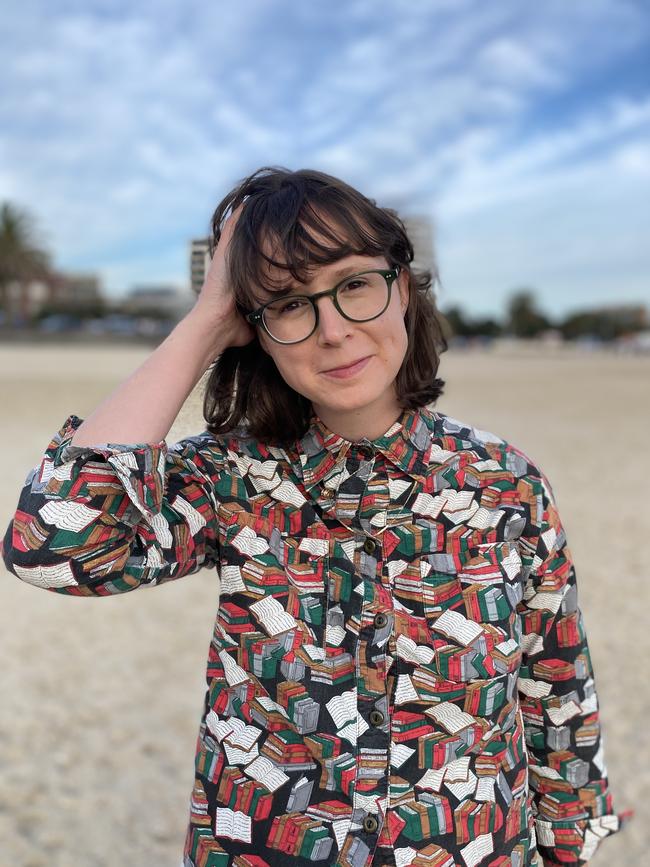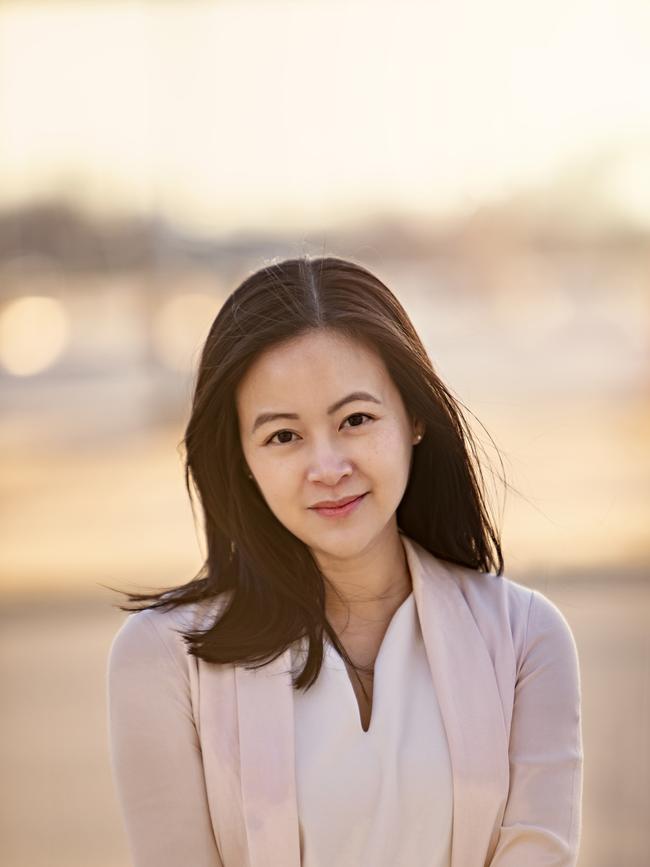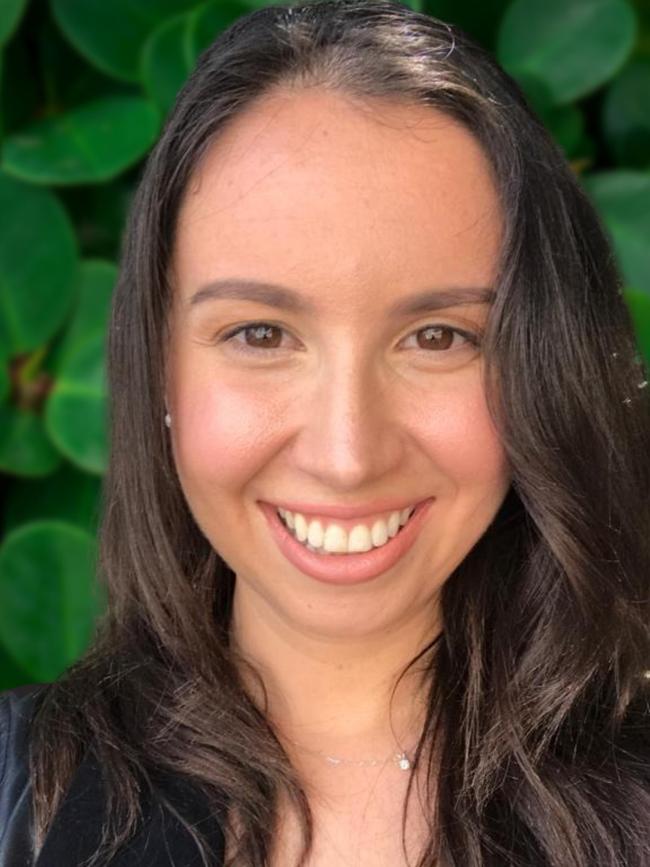The Australian/Vogel’s Literary Award: High talent in the shortlist
Take a sneak peek as the trio of writers shortlisted for The Australian/Vogel’s Literary Award present extracts of their manuscripts.

Take a sneak peek as the trio of writers shortlisted for The Australian/Vogel’s Literary Award present extracts of their manuscripts.
A PLACE NEAR EDEN, by Nell Pierce
I had planned to tell you everything that happened to Sem and Celeste and me when we were older. What happened out at Eden, and the events that followed. But I can see now that the story starts earlier, at least as early as the day Sem moved out. The day they took him away. Maybe even earlier. With the accident on the bridge, perhaps. Or maybe the story really began when my parents decided to foster Sem.
The fact that my parents had chosen Sem made him even dearer to me. He arrived fully formed, 13 years old, with a flop of dark hair and a pointed chin. I felt lucky to have him. But for my parents it wasn’t a matter of luck. Mum talked about the drawn-out bureaucracy of the foster system with such frustration, it was as if she deserved Sem, as though every hurdle was preventing her from claiming the son she was owed.
We were the Holmans, our name written in cursive script across our letterbox. We lived in Canberra, in a suburb of long streets of single-storey houses with low front hedges and yellowed lawns. The air got so cold in winter that it hurt to breathe in. Summers were so hot that your skin burned just walking to the car and the sky was an eerie, saturated blue.
Almost as soon as he arrived at our house, Sem started running away from it. When he wasn’t running away, he was angry. Most nights he got home from school and stormed straight to his bedroom, shutting his door with a bang, and wouldn’t come out until long after dinner was over, when he would eat the plate of now-cold food Mum had left out for him. But sometimes he didn’t come home at all, and Mum and I would sit in the car out the front of school for 10 minutes, 20 minutes, half an hour, until Mum let out an anxious sigh and went in to see if any of the teachers could find him.
Each time Sem disappeared was a fresh worry for my parents. Usually, he didn’t venture too far. Once a friend’s mother called up to say that he was at her house, and there was the night Dad found him down by the lake, shivering beneath a picnic table. But sometimes he travelled further. He took a bus out of town and the police had to be called. One time it was three days before they found him and brought him home.
My mother, I think, felt humiliated. It was as if her love was not enough. And my dad, well, I don’t think Dad had been too keen on fostering Sem in the first place. In the days before he arrived, Dad kept bringing up all the ways in which Mum wasn’t prepared to care for a teenage boy.
“What will you do when he comes home drunk, or smelling of weed?” Dad asked one night over dinner.
“I’ll have a mature conversation with him,” Mum said, spooning more carrots onto her plate.
“Good luck with that.” Dad smiled mockingly.

Or, driving past a group of boys standing around out the front of the newsagency, Dad announced, “He’ll be destructive. He’ll break things. Make a mess. That’s what boys are like.”
Mum just shrugged and said, “We’ll deal with that when we come to it. Material things really aren’t that important anyway.”
So when Sem arrived only to keep trying to leave, Dad probably felt vindicated, in a way. He liked to say that Sem was “trouble” and “troubled”. When he found a pack of cigarettes under Sem’s bed. When Sem helped with garden work and tore the end of the drainpipe away from the roof. When Sem swore at the dinner table, didn’t do his homework, tagged his name on his desk in white-out, touched all the expensive and breakable things when we were shopping. Dad had a special tired voice that he used when he talked about Sem. It was a tone of accusation too. Directed not at Sem but at my mother, who had brought Sem into our lives.
When I think about it now, I’m surprised it didn’t occur to me at the time that Sem was running from my dad and his disapproval, his obvious reluctance to have Sem in the house. But then I think of Mum. Maybe it was her he was trying to escape. The moment she met him, Mum already loved Sem like she’d had him for all of his 13 years. Maybe that was what he wanted to get away from: the great weight of her love and the expectation that went with it. Like she’d given so much to him – carefully packed lunches and home-cooked dinners, freshly washed clothes and lifts home from school – now she was waiting for him to give something back.
But then I think maybe he wasn’t running away from my parents at all. Maybe he was running towards something. Looking for a certain place or person, or trying to get back to family or friends that he loved.
Or maybe those were the things he was running from. Something that happened with his mother, or later, at one of the other foster homes. Running away from things in his past. Now, I can understand that kind of running. To escape your history, you have to escape yourself. Whether it’s under a picnic table or on a bus out of town or plunged into the alien silence underwater, you have to find a way to somehow, even if just for a moment, make yourself disappear.
Maybe, I think now, Sem was running away from me.
Extracted from A Place Near Eden by Nell Pierce, one of three shortlisted entries for The Australian-Vogel’s Literary Award 2022.
THE RED THREAD, by Anna Hui Tran
Our old, faithful Ford plods along Canley Vale Road towards Cabramatta in Western Sydney, dubbed Smack Express for being Australia’s heroin capital. The weekly Sunday adventure involves the luxury of a restaurant meal and to buy the week’s groceries. The suburb reminds my parents of Phnom Penh, where they’d shopped on a daily basis, and everything was cheaper than in Western grocery stores. There wasn’t any electricity back then, MaMa tells me when I compare their old routine to ours, let alone refrigerators. Not in the countryside, and definitely not during the Cambodian Civil War.
BaBa parks off John Street to avoid the fifty-cent fee at the Dutton Lane car park. We wait for him to secure the steering wheel with a bar lock, step out and zip up his neon wind jacket. He scoops his peppered hair away from his eyes.
As we walk, my older brother Jin and younger sister Yun stick close to MaMa, and I cling to BaBa, self-conscious about wearing my school shoes – fully enclosed black leather with a kitten heel – even though they don’t match my sunflower dress and jumper. At nine and a half, I’d argued for the right to choose my own footwear, but had quickly yielded on seeing MaMa’s no-nonsense frown.
“Careful,” MaMa says in Teochew, our native Chinese dialect, her lilting, musical voice soft but clear. The patches of grass between driveways are hidden beneath dozens of syringes and their steel tips wink at me in the sunlight.
“They’re full of diseases,” BaBa says, pulling me closer.

I survey the orange caps that sit atop the mounds, crowning each pile, and evade their jabs.
On John Street, we weave between throngs of people and fruit piled high like pyramids, hurrying to keep up with my father’s quick pace while lifting my nose to inhale the fresh pandan waffles and deep-fried Thai banana fritters. We pass twin bronze dragons that guard the Friendship Arch and tall marble beams topped with an imperial roof, reminding me of Wong Fei Hung martial arts movies. I stare with longing at Red Lea, a BBQ chicken and hot chips shop loaded with as much chicken salt and paprika you can shake out of the canister, but my family heads into the local Cambodian restaurant, Battambang.
Inside, it’s barely lit by the sun that streams through the door and window. The tables are full, as usual. Large bowls of hearty pork soup sit in front of each customer, and the aroma and slurping sounds fill the tiny shop. BaBa holds up his hand; we need a table for five. The waiter with a comb over gestures for us to take a seat at the front table, the worst seats in the house, propped up against the small window as other customers jostle our chairs when coming and going, and so cramped that I have to wait for my family to take their seats one at a time before I can take mine. The waiter places a teapot and stacked cups on the table. MaMa orders four large bowls of gim ta kway teow and an empty bowl for Yun.
“Bean sprouts. Fresh or cooked?” the waiter asks in our native tongue.
MaMa requests cooked and the waiter tosses his head back and shouts the order in Khmer into kitchen via the pass-through. The elderly chef gives a curt nod, her hunchback a legacy from the Cambodian forced labour camps. When the Khmer Rouge seized power, MaMa had told me once, they declared it Year Zero, a new beginning where everyone became farmers; the adult camps were much worse than the children’s ones my parents had been in. And that’s why we have to study hard so that we can use our minds, not our hands, to work.
“You don’t want to end up like that, do you?” MaMa had asked, her words unkind but her tone, pitying.
I’d shuddered at the chef’s bent back that held the permanent curve of a plastic protractor and said, “Definitely not.”
When MaMa was sure I’d understood the lesson, she nodded, and didn’t speak of wartime again.
I pull a few tissues, coarse with rough-cut edges, from the box painted with a familiar rainbow lorikeet logo; these are from the tissue factory where my parents work. MaMa’s on the assembly line, monitoring the tissue cutting process and discarding any with imperfections, and BaBa’s a forklift driver. I pass the box to MaMa and we share a smile. I clean the cups as MaMa takes care of the chopsticks and silver spoons flecked with small scratches.
I check the colour of the tea, and motion for Yun to begin serving. Yun’s long, tan fingers have a firm grasp of the handle but her hands are shaky, resulting in a stream of spilled tea.
“Yun!” MaMa says, as I mop up the mess.
When I look over at my sister, her eyes are downcast. Under the table, she shakes my knee in a plea for me to take over. I mutter under my breath, “You’re going to have to learn eventually,” but do it anyway.
Hot bowls and a plate with bean sprouts and lemon quarters soon appear. BaBa, who thinks all dishes are improved with chili, squirts sriracha into his bowl, while MaMa skims Yun’s meal from the others, dividing the precious prawns, fish balls and quail eggs. MaMa offers lemon juice but Yun shields her bowl; she prefers her Cambodian noodle soup plain. Jin and I raise our eyebrows.
“She must be adopted,” Jin laughs, displaying his full set of adult teeth that are too big for his pre-teen face; there’s a splattering of pimples down his forehead from where he’s trying to grow out his hair.
We call for our parents to eat and wait for them to begin their meal before we thrust our faces above the bowls, and I savour the rich, sweet, comforting broth.
“The broth is good,” MaMa says to me, “but what’s different?”
Although MaMa had taught me how to cook, I knew I couldn’t be a cook; I have to aim high. Each night, with the assistance of a step stool, I prepare the rice, always adding a vegetable piece for colour, and this year, I’d advanced to washing, peeling and chopping the vegetables for stir fries and soups. I taste the clear pork broth again.
“The flavour isn’t as bold as we’re used to,” I say. “Maybe they changed the ratio of pork neck and back bones. And lemons instead of limes.”
“And why would that be?” BaBa asks.
I rub the tips of my fingers with my thumb. “Everything costs money. And when you’re running a business, that money is your profit.”
My siblings are too busy eating to play in the Chan family edition of Sale of the Century.
Outside, I squint, my eyes adjusting to the brightness, as MaMa asks BaBa what he wants to eat for dinner tonight.
“Do you reckon BaBa will let us buy some?” Jin asks, pointing his chin towards the Thai shopfront that sells fritters freckled with sesame seeds and silver trays full of beef jerky. Yun looks hopeful.
“Mei should ask. BaBa lets her have everything,” Jin says.
“Go on,” Yun says, pushing me towards our parents. I tug on BaBa’s jacket. “Can we have money to buy sweets?”
“Lao gong, they just ate,” MaMa says.
“Please?” I give BaBa my best smile, but he’s already pulling his wallet from his trousers. MaMa sighs.
I hold out my hand to accept the five-dollar note. BaBa keeps the money out of reach, asking, “How much change will you get from five dollars?” I’m rewarded when I calculate the correct answer and BaBa praises my problem solving to MaMa, wondering aloud if I’ll become a banker or engineer, but I’m more interested in listing the ingredients in my head, certain that I taste rich coconut cream and the tang of freshly grated coconut flakes in the crispy batter.
Extracted from The Red Thread by Anna Hui Tran, one of three shortlisted entries for The Australian-Vogel’s Literary Award 2022.
THE SPOON AND THE SEA, by Rachel Caplin
My mother had an astonishing collection of Readers Digests filled with all sorts of facts.
Did you know it would take eighty trillion years to drain the sea through a bathroom plug?
Or that oranges used to be green?
Some facts are more helpful. Like the fact that forty per cent of our earliest memories are entirely fictional.
Not muddled nor out of sequence but fabricated from thin air.
It was a day so clear that I could faintly see the Dead Sea to the south. I closed my eyes to rewind.
I was no longer in the Keshet Dementia Care Home in Jerusalem, listening to the soothing cacophony of chimes and birds beneath an olive tree. Instead, I smelt saltwater and heard waves crashing.
A young boy in a shallows of the turquoise Indian Ocean. My mother behind me with a skirt hunched up around her knees.
My father watched from the sand. He did not like the feeling of wet sand on his feet.
My father was the Chief Justice of Zanzibar. Together we went fishing with princes and watched policemen salute as his shiny black car approached.
“Come in the water!” I shouted.
My father shook his head defiantly. My mother laughed, squealing as little waves broke at her ankles.
Nothing seemed strange about this scene at the time.
My black father and my white mother. I did not know she was Jewish, back then.
Life was carefree at the slow crossroads between East and West. The school nuns loathed my mischief. My friends sped bicycles around town squirting water on innocent pedestrians, daring each other to pinch coconuts to throw at Indian street merchants.

Being a half-caste did not matter. I was Ashar Al-Majid, son of the Chief Qadi.
I pushed against the tide, wading further until the water reached my waist.
Ready, steady, with full lungs I lunged forward. The water drowned out the sound of children playing and fishermen shouting by the docks.
One, two, three …
I tumbled to the shore and looked expectedly to my mother, breathlessly waiting for a scorecard.
Thirteen! Fifteen!
At the next wave, I decided to test her. I was certainly underwater no more than eight seconds.
Eighteen! She beamed.
Crestfallen, I realized that she did not truly count how long I was underwater.
As years passed, I wondered if it mattered.
Or if it only mattered that, for a time, she was there when I turned around.
After all, I was nine years old when my mother disappeared.
I spent summers on a rickety dinghy wondering where she was. Teetering on the edge of the boat, I waited for the dancing humpback whales. One by one they burst through the glassy water, escaping cold South African waters for the warmer currents of Somalia. For hours, I strained my ears to decipher the whale song of one pod from another.
Singing the right tune can be a vital part of fitting in and belonging to the pod.
Some found theirs, others swam on the fringe forever.
For the better part of a decade, my mother’s story took shape without me.
She swam on the fringe, singing the right tune to fit in. As I became older and wiser, I tried to be sympathetic. But oftentimes I was still the boy who woke up and his mother was gone.
“Pick a year, Ashi,” she said softly, interrupting my thoughts floating in the Indian Ocean.
Pick a year. Pick a year. Our little game to try to hold onto the waves before they disappeared out to sea.
I opened my eyes. The Keshet garden was a bazaar for the senses designed to jolt memories from fading away. The Jerusalem sun shone brilliantly on her diamond-encrusted brooch and silver hair.
We sat next to the wooden gazebo with two cups of coffee. She slid down into the chair, eyes closed, and hands gently clasped across her belly, tilting her wrinkled face to the morning rays. My mother worshipped the sun, always had.
“Let me think,” I said slowly, taking a sip of coffee.
“Take your time. Verter zol men vegn un nit tseyln,” she replied with a smile.
Words should be weighed and not counted.
On this morning, I had another one of her Yiddish sayings on my mind.
Mit a lefl ken men dem yam nit oys‘shepn.
You cannot empty the sea with a spoon.
“Have you ever been to Jerusalem?” my mother asked suddenly.
I sighed and looked around at the city that was home to us both.
For some time, I floated as a tumbleweed across Bahrain, Aden, Kenya, Dubai and London. Breaking away at the root, I drifted with the wind up the Judean mountains to Jerusalem. A limestone hodgepodge for heretics, mystics, and misfits.
Misfits like me. A deplorably scruffy, coffee-skinned writer who never wrote a book.
“Of course. We are in Jerusalem right now,” I answered patiently. “My husband would be jealous. Even Joseph grew tired of London. He was a doctor, you know.”
I said nothing as she agitatedly twisted her wedding band.
“Pick a year, Ashi,” she repeated.
“Okay, then. 1946.”
The numbers hung in the air. Nineteen. Forty. Six.
My mother shifted uncomfortably and swatted a fly that did not exist.
“1946?”
She seemed the charming caricature of a sweet grandmother. She watched Coronation Street and kept a silver bowl of chocolates by the door.
But my mother’s story was far from orthodox.
After all, I was living proof of her greatest scandal.
“Yes, 1946. If – if you …” I spluttered.
“If I remember?” she whispered as the corners of her lips straightened seriously.
The sun went behind a cloud and her silver hair turned grey.
This was the unjust conundrum of dementia. She could comfortably retrace seven decades back to the mental corridors of childhood but got lost on the journey back to breakfast.
“Some things are unforgettable, Ashi.”
And with that, she took a spoon and started to empty the sea between us.
Extracted from The Spoon and The Sea by Rachel Caplin, one of three shortlisted entries for The Australian-Vogel’s Literary Award 2022


